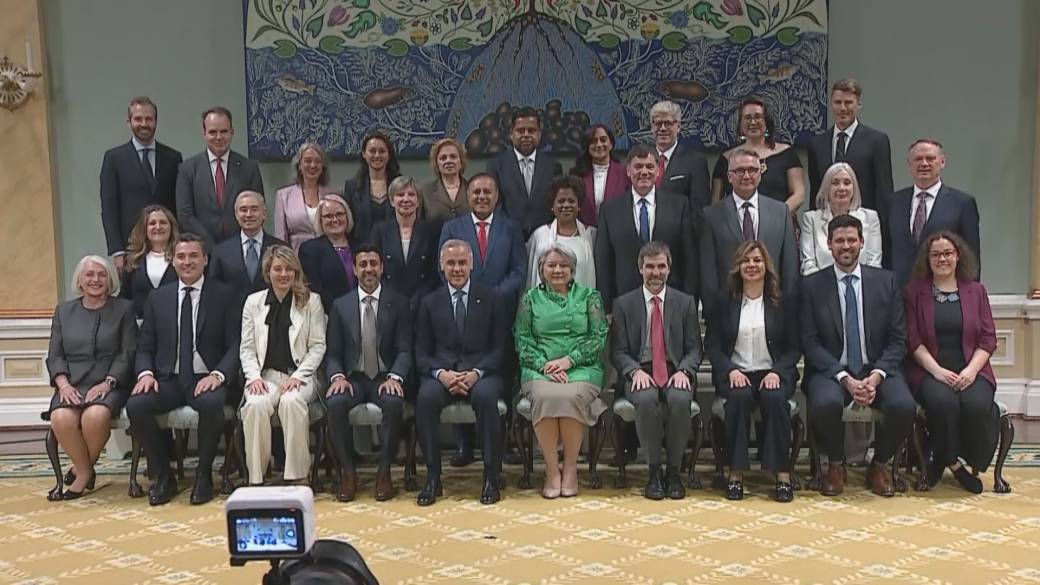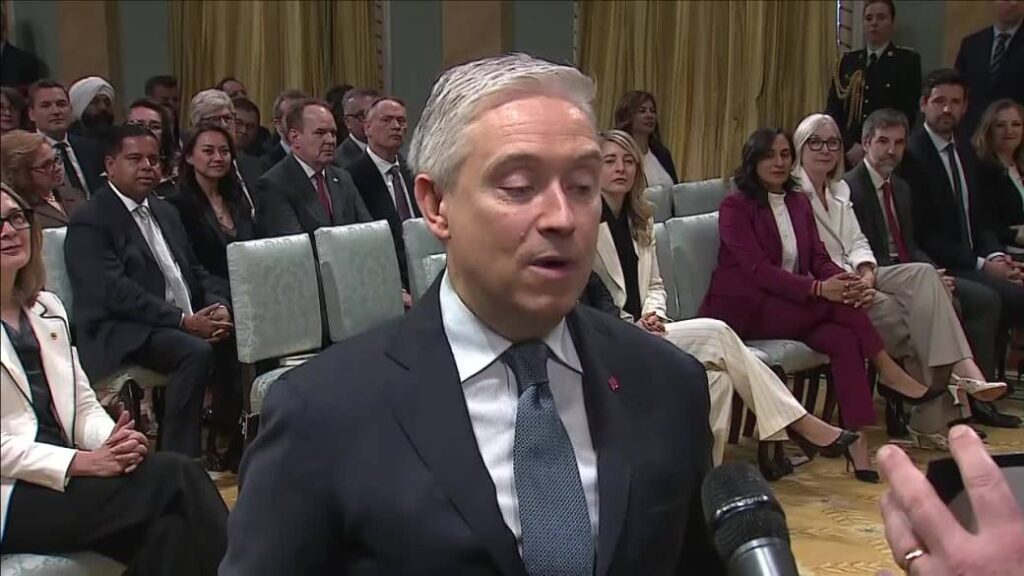The federal government does not plan to table a federal budget before the House of Commons rises this summer, the finance minister said Wednesday, drawing criticism from opposition parties of Prime Minister Mark Carney’s priorities.
Finance Minister François-Philippe Champagne said the government’s first priority will be to pass what the Liberals are calling a “middle-class tax cut” by July 1.
“That’s step one,” Champagne told reporters after a cabinet meeting in Ottawa, the first since the new ministry was sworn in Tuesday.
“Step two, you’re going to have a throne speech where we’ll outline the Canadian government’s priorities, and there will be a fall economic statement to follow. So those are really the sequence (of events) that you’re going to see.”
Champagne said the proposed tax cut will be introduced through a ways and means motion in the House of Commons that will be tabled immediately after Parliament returns on May 26.
Carney on Wednesday signed a document, which he called an “order,” that he said would deliver the tax cut.
“We promised the middle-class tax cut leading to over $800 of savings for two-income households,” Carney said.
“We are acting today on that, so that by July 1, as promised, that middle-class tax cut … will (come) into effect. We’re acting on affordability as we look to build up this economy.”
Champagne said prioritizing the tax cut shows the Liberals are listening to Canadians.
“This is very significant and it sends a very strong and clear message to Canadians that we care, that we understand that one of the first concerns they have is about affordability,” he said.
1:13
Carney cabinet shuffle: François-Philippe Champagne stays on as finance minister
While campaigning as Liberal Party leader, Carney pledged to reduce the lowest marginal tax bracket by one per cent.
The lowest tax bracket as of now is 15 per cent of all qualifying income earned up to $57,375. Carney’s promise would bring that down to 14 per cent instead.

Get weekly money news
Get expert insights, Q&A on markets, housing, inflation, and personal finance information delivered to you every Saturday.
The Liberals, who won a minority government in the House of Commons, will need some opposition votes to pass any legislation.
“We expect other parliamentarians to support, obviously, the government, because this is about Canadians,” Champagne said when asked about the upcoming vote. “This is a way for all parliamentarians to show up and say, ‘Yes, we support Canadians at a time where they need a break.’”
Conservative Leader Pierre Poilievre and interim NDP leader Don Davies both said it’s unacceptable that Carney will not produce a fiscal plan anytime soon.
“There is no road map forward, no economic vision and no willingness to lead,” Poilievre said in a statement.
“Canadians were told that Mark Carney, the supposed serious economist, would bring competence and clarity. Instead, we’re getting delays and disfunction.”
Davies said Parliament needs to be able to scrutinize the Liberal government’s spending plans and Ottawa should not delay federal spending in light of the economic crisis brought about by U.S. tariffs.
“It’s Parliament’s most basic function to authorize and scrutinize spending. We need an economic plan tabled in the House of Commons in June,” he said in a statement.

King Charles III is scheduled to deliver the Speech from the Throne to Parliament on May 27, outlining the new government’s vision.
After the throne speech is delivered, the government will introduce a motion that triggers up to six days of debate, after which the House of Commons will vote on approving the speech and the government’s agenda.
The motion effectively serves as the first measure of confidence in the government, as passing it would allow the government to begin carrying out its legislative priorities.
Budgets and fiscal updates are also typically treated as confidence votes for the government when presented in Parliament.
Poilievre, who put forward his own tax cut plan during the campaign, and Conservative MP Andrew Scheer — who will lead the party in the House of Commons until Poilievre can regain a seat in Parliament — have not said if Conservatives will support the Liberals’ tax cut proposal.
Carney’s government also announced Wednesday several new cabinet committees meant to reflect his government’s focus on shoring up Canada’s sovereignty and improving Canadians’ quality of life.
They include one committee dealing with priorities, planning and strategy, which will be chaired by Carney, and a new “Build Canada” committee focused on strengthening Canada’s economy, according to information published on the prime minister’s website.
Carney also struck a committee on government transformation and efficiency tasked with reducing government spending.
Another committee deals with ensuring a “secure and sovereign Canada,” managing Canada-U.S. relations and advancing “Canada’s interests around the world.”
— with files from the Canadian Press
© 2025 Global News, a division of Corus Entertainment Inc.




